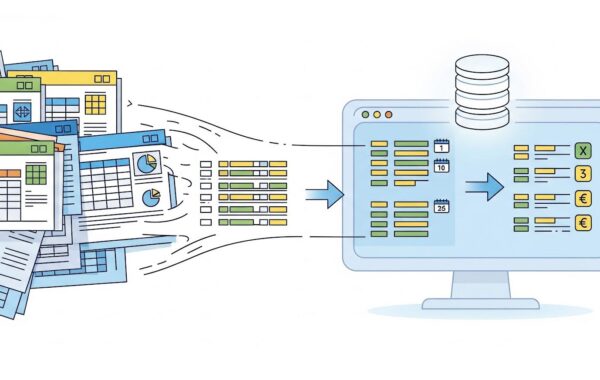Based on the increasing number of lawsuits that continued to stream in throughout 2020, it’s clear to see that many public websites violate disability rights laws.
More important to note is the lack of access to public health sites which are hindering the ability of blind people to sign up for potentially life-saving treatments such as the current COVID-19 vaccines.
So, which users are being affected most?
According to Essential Accessibility, “The overwhelming majority of suits were filed by users with vision impairments, alleging websites are inaccessible with screen-reader technology.”
What does the law say?
Essentially, Web Accessibility laws protect the rights of people with disabilities who access digital services and content on the Internet.
In America, the ADA requires businesses with physical locations to make their websites and other online platforms accessible to those with disabilities. And as of the 23rd of September 2020, it became law in Europe and the UK that all Public Sector organisations like Councils, Universities, Schools etc., have their websites comply with the WCAG 2.1 AA standards.
How are public websites failing people with disabilities?
Two case studies that have made headlines of late involve Dominos Pizza and the majority of American Vaccines site.
According to CNBC, the Supreme Court has denied a petition from pizza giant Domino’s to hear whether its website is required to be accessible to the disabled.
The ruling comes as a response to a case that was originally brought by a blind man named Guillermo Robles, who sued the pizza chain after he was unable to order food on Domino’s website and mobile app despite using screen-reading software.
The decision not to grant the case is a loss for the company and a win for disability advocates, who have argued that if businesses do not have to maintain accessible sites, disabled people could be effectively shut out of substantial portions of the economy.
Robles’ attorney, Joe Manning, said in a statement that the decision was “the right call on every level.”
“The blind and visually impaired must have access to websites and apps to fully and equally participate in modern society – something nobody disputes,” he said. “This outcome furthers that critical objective for them and is a credit to our society.”
The lawsuit is one of an increasing number filed over website accessibility in recent years. Last year, more than 2,200 such suits were filed in federal courts, according to the accessible technology firm UsableNet, nearly tripling the number a year before.
The case is known as Domino’s Pizza v. Guillermo Robles, No. 18-1539.
Read the full article on the CNBC website.
As people all over the world prepare to get themselves vaccinated, it has become standard procedure for citizens to register on their respective government’s vaccination websites.
A KHN investigation has found that many people across America, who use special software to make the web accessible, have been unable to sign up for the vaccines or obtain vital information about COVID-19 because many government websites lack required accessibility features.
It goes on to say that WebAIM, a nonprofit web accessibility organisation, checked COVID vaccine websites gathered by KHN from all 50 states and the District of Columbia. On January 27th 2021, it found accessibility issues on nearly all of the 94 web pages, which included general vaccine information, lists of vaccine providers and registration forms.
In at least seven states, blind residents said they were unable to register for the vaccine through their state or local governments without help. Phone alternatives, when available, have been beset with their own issues, such as long hold times and not being available at all hours like websites.
Even the federal Centers for Disease Control and Prevention’s Vaccine Administration Management System, which a small number of states and counties opted to use after its rocky rollout, has been inaccessible for blind users.
Those problems violate the Rehabilitation Act of 1973, which established the right to communications in an accessible format, multiple legal experts and disability advocates said. The federal Americans with Disabilities Act, a civil rights law that prohibits governments and private businesses from discriminating based on disability, further enshrined this protection in 1990.
Doris Ray, 72, who is blind and has a significant hearing impairment, ran into such issues when she tried to sign up for a vaccine last month with the CDC’s system, used by Arlington County in Virginia. As the outreach director for the ENDependence Center of Northern Virginia, an advocacy centre run by and for people with disabilities, she had qualified for the vaccine because of her in-person work with clients.
When she used screen-reading technology, which reads a website’s text aloud, the drop-down field to identify her county did not work. She was unable to register for over two weeks until a colleague helped her.
“This is outrageous in the time of a public health emergency, that blind people aren’t able to access something to get vaccinated,” Ray said.
Common programming failures that make sites hard to use for the visually impaired included text without enough contrast to distinguish words from the page’s background and images without alternative text explaining what they showed, the WebAIM survey showed.
Even worse, portions of the forms on 19 states’ pages were built so that screen readers couldn’t decipher what information a user should enter on search bars or vaccine registration forms. The new vaccine pages had more errors than states’ main coronavirus pages, but slightly fewer than state government websites in general said WebAIM Associate Director Jared Smith.
Read the full article on the KHN website.
Conclusion
What’s clear about both of these case studies is that Web accessibility is still not being taken as seriously as it should be by most businesses or public institutions.
Every human being, able-bodied or not, has the legal right to access a website. Even more so when they are reliant on it for critical or life-saving services. Companies that do not abide by these Web Accessibility rules will fall short in the long run by either losing a multitude of disabled clients or by being issued with hefty penalties.
At Little Forest, we support your business with automated accessibility monitoring, helping you improve the web experience for your users whilst avoiding costly lawsuits and fines. We work with you to understand the compliance of your site and use the reports to help you put together an accessibility strategy.
The Little Forest platform gives you instant reports on how your pages perform against all major standards. We are continuously upgrading our systems to be in line with the latest legal requirements helping you stay in line with the latest guidelines.
Is your business compliant with the latest Web Accessibility guidelines? Get in touch and speak to the Little Forest team today!












